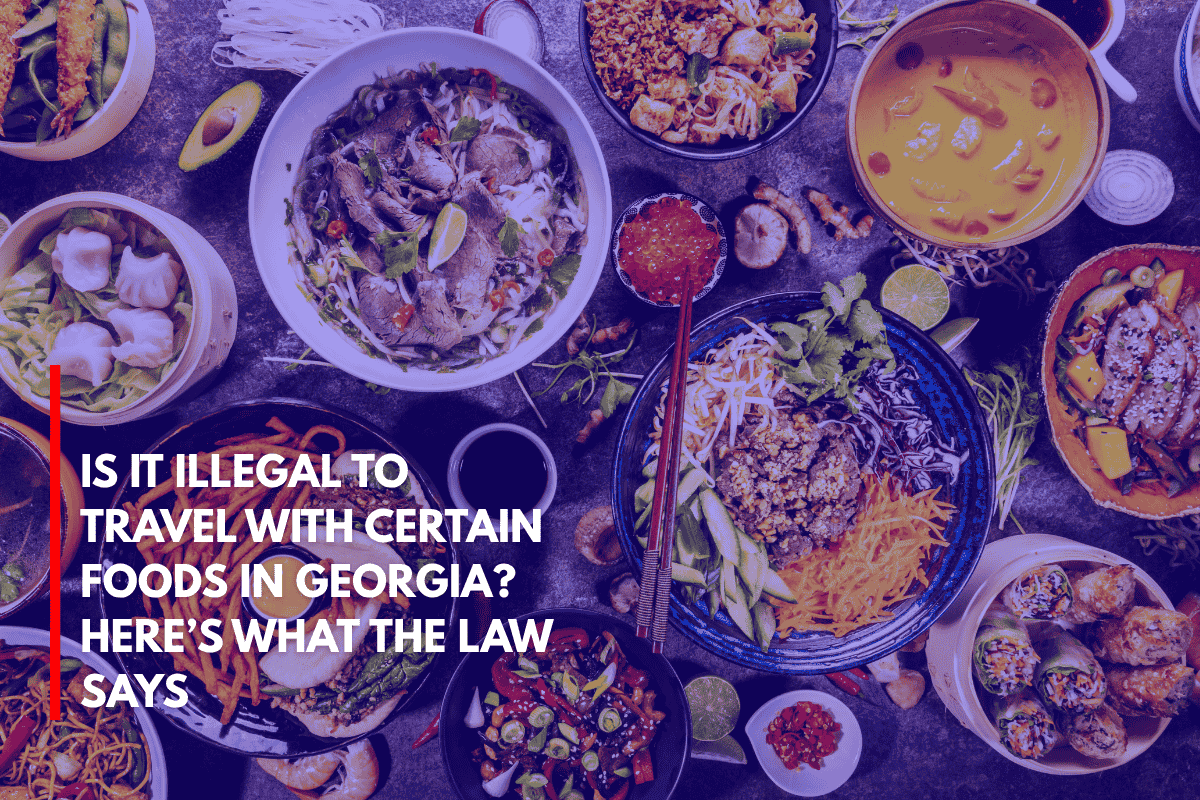Traveling with food in Georgia—especially for personal use—is generally legal, but there are important regulations and restrictions depending on how and what you are transporting, and whether you are engaged in food sales or commercial transport.
Traveling With Food for Personal Use
Across State Lines or Within Georgia by Car or Air
Solid Foods: You can legally transport solid food items for personal use, such as snacks, sandwiches, or packaged goods, both within Georgia and across state lines.
Liquid or Gel Foods: If traveling by air, the Transportation Security Administration (TSA) limits liquids and gels in carry-on bags to containers of 3.4 ounces or less per item, all fitting in a single quart-sized bag. There are no such restrictions for checked baggage or when traveling by car.
Fresh Fruits and Vegetables: For domestic air travel within the continental United States, you may bring fresh fruits and vegetables in your carry-on or checked bags. However, if you are flying from Hawaii, Puerto Rico, or the U.S. Virgin Islands to the mainland, most fresh fruits and vegetables are prohibited due to invasive species concerns.
Meat and Seafood: You can transport fresh or frozen meat and seafood for personal use, but there may be special instructions or restrictions depending on your destination.
Commercial Food Transport and Sales in Georgia
If You Are Selling or Distributing Food
Permits and Licenses Required: If you are transporting food for sale or as part of a business, you must comply with Georgia’s food service regulations. This includes obtaining a business license, food handler’s permit, health department certification, and (if applicable) a mobile vendor permit or mobile food facility permit.
Food Safety and Inspection: Food transported for commercial purposes must meet state and local health standards, including proper temperature control, sanitation, and safe handling practices.
Mobile Food Trucks: Operators of food trucks and other mobile food businesses must secure all necessary permits and comply with additional regulations regarding food preparation, storage, and waste disposal.
Key Points
Personal Travel: There are no state laws in Georgia that prohibit individuals from traveling with food for personal consumption, whether by car or air, as long as you follow TSA rules for air travel and do not transport prohibited items (such as certain fresh produce from specific regions).
Commercial Travel: If you are transporting food for sale or as part of a business, you must secure the proper permits and follow all relevant health and safety regulations.
Summary Table
| Purpose of Travel | Legal to Transport Food? | Special Requirements/Notes |
|---|---|---|
| Personal (car or air) | Yes | Follow TSA rules for air travel |
| Commercial (sale/dist.) | Yes, with permits | Licenses, health inspections, food safety rules |
It is not illegal to travel with food for personal use in Georgia, but commercial food transport and sales require strict compliance with state and local regulations. Always check for the latest rules if you are transporting food for sale or traveling by air from specific regions.
Sources:
- https://www.tsa.gov/travel/security-screening/whatcanibring/items/fresh-fruits-and-vegetables
- https://www.nerdwallet.com/article/travel/can-you-bring-food-through-tsa
- https://pos.toasttab.com/blog/on-the-line/food-truck-licenses-and-permits-in-georgia
- https://dph.georgia.gov/environmental-health/food-service











Leave a Reply